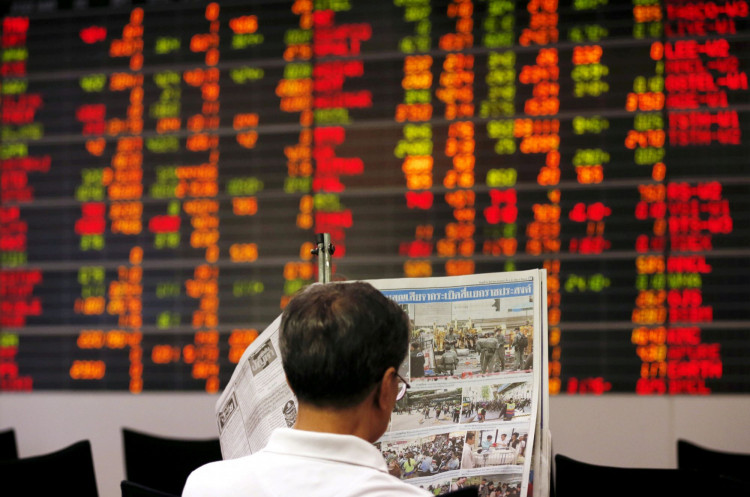Last Monday, data showed that Asian shares experienced a significant drop in financial markets. The alleged decline was reported to have been caused by the South Korean president's call for extreme measures to remedy the prevailing public health crisis that has reached its shores.
According to Business Inquirer, Asian shares have dropped since Monday. South Korea's Kospi was down by three percent to 2,098.37 while the S&P ASX/200 index in Sydney declined by 2.3 percent to 6,975.20.
Furthermore, Hong Kong's Hang Seng also lost 1.5 percent to 26,903.84 while the Shanghai Composite Index dropped by 0.3 percent at 3,029.22.
Last Monday, South Korea announced that it has been troubled by a public health crisis. The country's president Moon Jae-in called for unprecedented and powerful steps to combat the crisis.
In a commentary, Mizuho Bank then revealed that the spread of the public health crisis outside of China have driven risk assets in a tailspin. He claimed that investors responded by seeking refuge in safe-haven stocks.
Accordingly, bond prices on Wall Street declined due to slowed business activity in China. The S&P 500 lost 1.1 percent at 3,337. The Dow Jones Industrial Average also declined by 0.8 percent to 28,992. Similarly, the Russell 2000 index of smaller-company stocks laid away 1.1 percent while Nasdaq also lost 1.8 percent at 9,576.
The report claimed that technology companies are the greatest losers since they have greater exposure to China's economy and other industries. US chipmaker companies that greatly rely on China to boost their sales and supply chains took the biggest hits. One of which was Advanced Micro Devices who lost seven percent while Nvidia's stock value plummeted by 5.6 percent.
The slowing business activities in China also took its toll on US manufacturing companies. Data released by IHS Markit showed that yields in financial markets have not reached analysts' expectations.
Furthermore, the report claimed that travel restrictions across China have caused the closure of factories in the country thereby significantly hurting the supply chain industry. It was also found that sales prospects for US companies such as Apple have incurred significant losses due to the Chinese economic slowdown. Furthermore, the closing of factories in China was also perceived to be one of the causes of the decline of US companies' sales in the country that affected their stock values.
For companies who rely on consumer spending especially those engaged in the travel industries also fell significantly. Marriott International lost 2.7 percent while Carnival shed 1.5 percent. Furthermore, American Airlines shares also lost 3.2 percent while the automotive industry giant General Motors lost by 2.2 percent.





